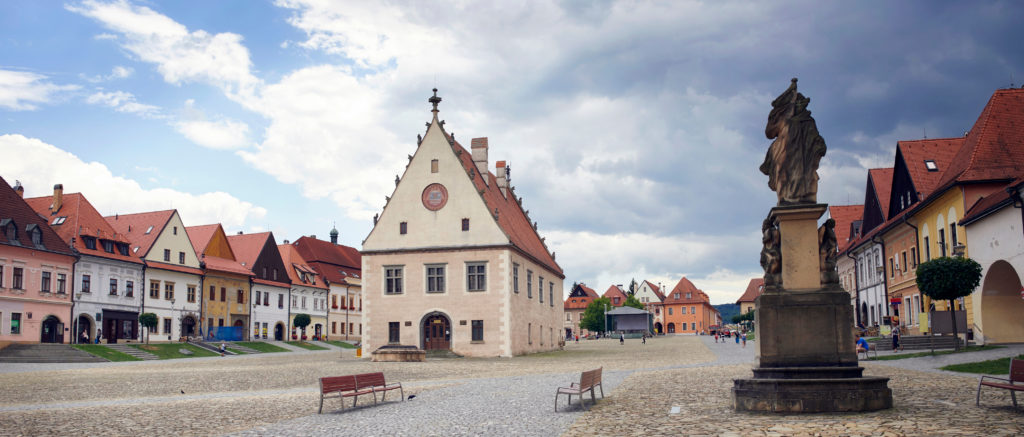
Slovakia’s National Council has passed the long-awaited amendment to the Slovak Citizenship Act (no. 40/1993 Coll.). Children, grandchildren and great-grandchildren of Czechoslovak citizens from Slovakia will qualify.
After countless delays and negotiations between the Slovak Ministry of Interior, Ministry of Foreign Affairs and the ruling coalition’s parties, the Slovak Parliament has finally passed the amendment to the Slovak Citizenship Act, paving the way for descendants of Slovaks abroad to apply for Slovak citizenship.
The long discussed residence requirement (applicants must hold a Slovak residence permit to apply) was not removed, despite diaspora’s petition to the contrary. Nevertheless, Dr. Milan Vetrák, a member of parliament advocating for the diaspora, has made assurances that the residence permits will be issued to potential applicants without much paperwork.
Eligibility
(2) An applicant who has a residence permit in the territory of the Slovak Republic may be granted citizenship of the Slovak Republic without fulfilling the condition specified in paragraph 1 letter. a) [standard condition of 8 years’ residence], unless this Act provides otherwise, if
j) the applicant was not a citizen of the Slovak Republic and at least one of his/her parents, grandparents or great-grandparents was a Czechoslovak citizen born in the territory of the Slovak Republic.
Text of the passed amendment
The text implies the following:
- The ancestor was a parent or a grandparent or a great-grandparent,
- The ancestor held, at some point, Czechoslovak citizenship,
- The ancestor was born in what is today Slovakia,
- The applicant has a residence permit in Slovakia – there is a catch, though (read below).
1. Ancestor’s Czechoslovak Citizenship
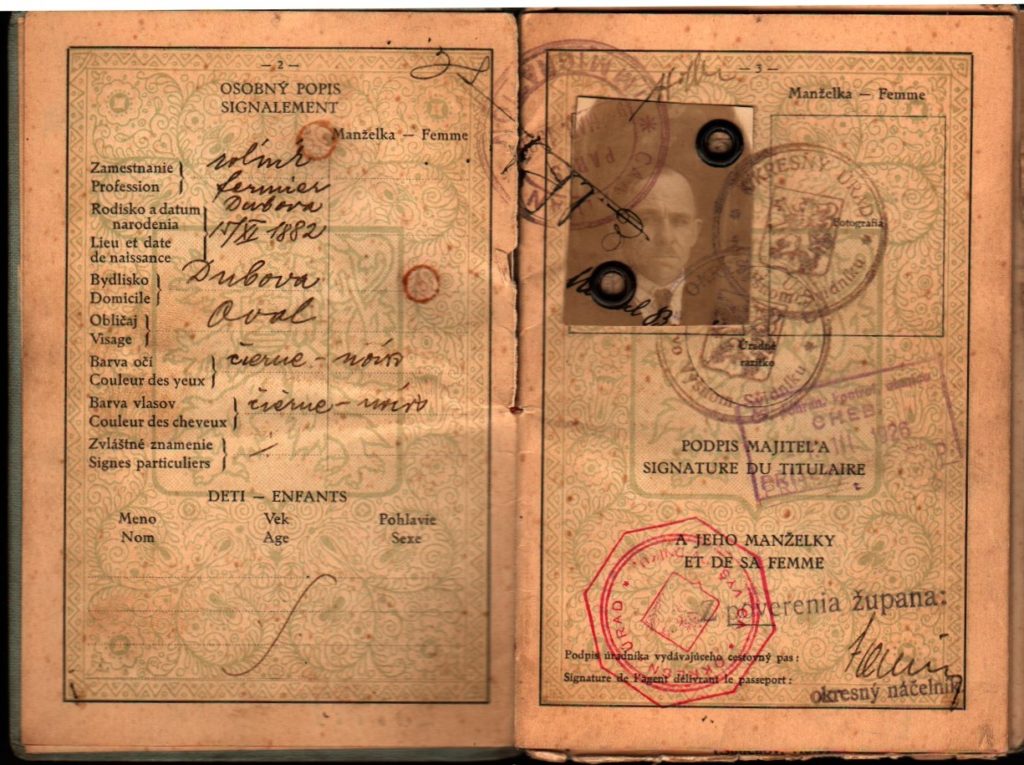
The question of who was actually a Czechoslovak citizen in the early days of Czechoslovakia is fairly complex. More on that here.
Nevertheless, it is undisputed that any duly resident citizen of the Kingdom of Hungary, who left Slovakia on or after 17 July 1910, became a Czechoslovak citizen (although there are certain exceptions, such as naturalizing in the United States before 1920). Furthermore, anyone who left after 1930 would likely appear on the Czechoslovak census, which would list their citizenship.
There are no standardized guidelines on the kind of evidence that Slovak authorities ask for in order to demonstrate the qualifying ancestor’s citizenship.
Obviously, the best evidence would be a Czechoslovak passport. At the same time, the author of this article believes that in the absence of the above, demonstrating the relevant circumstances (emigration after 1910) may suffice to fulfill the requirement.
In either case, Slovak authorities have the ultimate say.
2. Ancestor’s Place of Birth
The most obvious evidence of one’s birth in Slovakia is a Slovak birth certificate. Other evidence may include marriage certificates, passports, census records and the like.
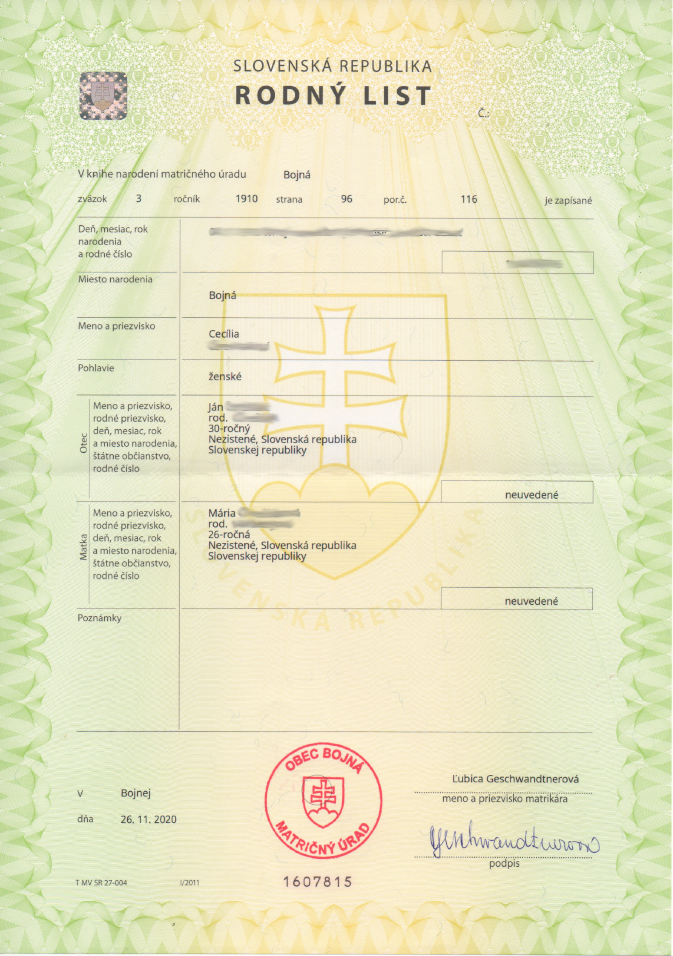
3. Residence Permit
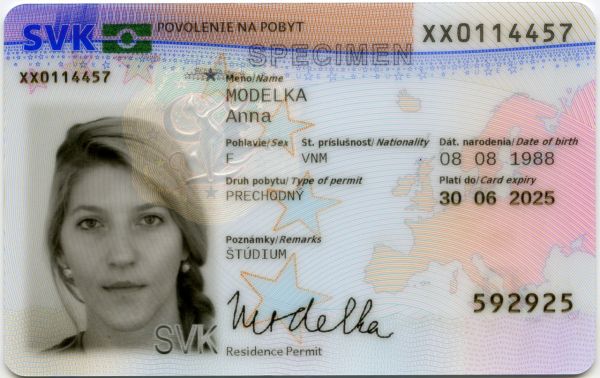
Despite efforts, which took many months, the bill was passed with a residence requirement. The text essentially says that an applicant must have a residence permit, however, there is no defined amount of time. Hence, one can apply on day 1 of holding a Slovak residence permit.
While obtaining a residence permit in Slovakia requires a lot of paperwork, thanks to the efforts of Dr. Vetrák, Member of Parliament, this process was streamlined and simplified in coordination with Slovak immigration authorities (Interior Ministry and the Bureau of Border and Foreigners’ Police).
The streamlined process allows applicants to apply at a Slovak embassy for both residence and citizenship at the same time, thereby removing the necessity of physical presence in Slovakia. According to Dr. Vetrák, the purpose of the residence permit requirement is to allow for more extensive vetting of potential applicants.
Potential applicants are thus able to apply for a grant of permanent residence due to special circumstance (udelenie trvalého pobytu na päť rokov z dôvodov hodných osobitného zreteľa) pursuant to Section 45a(1)(b) of the Foreigner’s Residence Act (404/2011 Coll.). It needs to be noted that residence permits granted under this provision are entirely discretionary and are not intended to facilitate potential applicants’ physical residence in Slovakia (no physical residence permit card is issued). An alternative route would be to obtain a Slovak Living Abroad Certificate, which entitles its holder to a residence permit and where the residence permit is issued as a physical card.
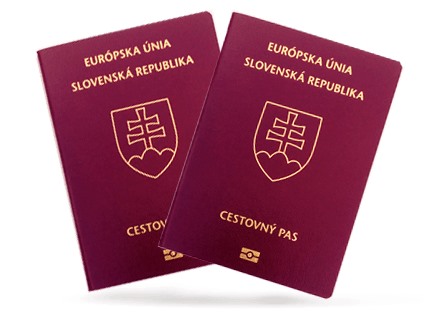
How To Apply
Given the caveats described above, an application at an embassy would require the following documents:
All non-EU documents must be apostilled (or, in certain countries, superlegalized) and translated to Slovak by a Slovak official translator.
Word of Caution
It’s important to understand that Slovakia views its citizenship as very much a privilege and not a right. Unlike in the Czech Republic, where descendants of qualifying ancestors are legally entitled to obtain Czech citizenship, the newly passed Slovak bill does not entitle applicants to citizenship.
It is therefore advisable to take as much care as possible when applying under the new legislation to make sure that your application fulfills all of the relevant requirements. Even then, the Slovak Interior Ministry, which adjudicates applications, still has a lot of leeway in determining who gets to be a Slovak citizen.

FAQ
When can I apply?
The effective date is April 1st, 2022. The President of SlovakiFa has signed the bill into law on March 7th, 2022.
Does the qualifying ancestor’s ethnicity matter?
No, all that matters is their Czechoslovak citizenship and place of birth.
Is there a language requirement?
No, there is no language requirement for applicants with qualifying ancestors.
What is the government’s fee?
Fees are only collected for successful applications.
Those with qualifying parent(s) or grandparent(s) will pay 20 Euros.
The fee for those with qualifying great-grandparent(s) is not yet clear – in the absence of a “discount”, the standard fee is 700 Euros.
Holders of the Slovak Living Abroad Certificate (unless they qualify for a lower fee, as per the above/below) will pay 400 Euros.
Children under the age of 18 pay 150 Euros and children under the age of 15 pay 100 Euros (unless they qualify for a lower fee, as per the above).
Persons above the age of 65 pay no fee at all.
Do I have to spend any time in Slovakia?
It seems that with the agreement announced by Dr. Vetrák, member of parliament, physical presence in Slovakia is likely not a requirement.
What if I have a criminal record?
Essentially, good character means that a person has not been convicted of an intentional criminal offense. If over 5 years have elapsed since expungement, such an applicant may be eligible, although such applications are likely to be given extra scrutiny.
What if my ancestor left Czechoslovakia before 1910?
You may be eligible, although the exact details are not yet clear.
My ancestor(s) lost their Czechoslovak citizenship. Am I eligible?
Yes. All that matters is that they were at some point a Czechoslovak citizen.
My ancestor(s) were Slovaks, yet were born outside of what is now Slovakia. Am I elgible?
Unfortunately, only those ancestors born in what is now Slovakia are eligible.

Thanks! Not sure which category it might fulfill, but as I am volunteering with a Slovak civic association and can support this with a letter, could it help as long as all the other basics are met?
In any case, my sense is that this would help – subjectively – in regards to the entitlement issue mentioned in relation to the Czech Republic example: They will see that I already have an investment in the country, and as a volunteer (i.e. with no monetary gain).
Do officials look at someone’s web presence? Who I Slovakia is my Facebook Friend? Will simple letters of reference help from notable Slovak citizens?
Where is the closest Slovak Embassy or Consulate to take my documents to? I Live in Detroit Michigan area
Hi David,
The embassy/consulate with jurisdiction over Michigan residents is the Slovak Consulate General in New York.
Samuel – CzechoSlovak Passport
I need to found my grandfather passport or birth certificates he went to Argentina 1927 had wife and 3 kid and in Argentina had 7 children 46 grandkids 102 bisnietos greakgrankid.He was living together with my grandmother for 27 years…he passed at the age 54 to young really sad for my mama and her 5 sister and 1 brother. Life was hard for them after he passed in Argentina. I moved to US by my self with one brother for a better future and my grandfather was my inspiration because my grandfather was 37 at the time when he immigrated to Argentina…I was 27 when I immigrated to US.I would love to obtain the Slovakia Citizenship to honor my grandfather sacrificed and keep our roots up with honor.
I am already recognized as a Slovak living abroad i have my ID card what more do I need as far as paperwork goes? I am interested in having my son’s become Slovak citizens
Hi Carl,
First of all, you’ll need to make sure that your children fit the eligibility criteria, ie. that have a parent, grandparent or great-grandparent who was a Czechoslovak citizen born in what is now Slovakia. If they do, then they’ll need to fulfill the second condition, which is that they’ll need to get a residence permit. In your case, it might be the easiest for them to also get the Slovak Living Abroad Certificates, which then allow you to apply for a residence permit with little additional paperwork.
Samuel – CzechoSlovak Passport
Can you please explain why this article says the 17th of July, 1910 as the date?
The liked article on why the date matters says
§1 Czechoslovak citizens are:
1. Effective October 28, 1918, persons who, at the latest on January 1, 1910 acquired and have since continuously held the right of residence in the territory of the former Austro-Hungarian Empire, which now belongs to the Czechoslovak Republic.
This nuance is actually very important to me, as my great grandmother left in May/June of 1910 and arrived in the US in early July, 1910.
Hi Lisa,
Czechoslovak citizenship was established by an act, which went into force on July 16th, 1920. Hence, if you’d lose your citizenship after a 10-years’ absence, you couldn’t have been absent for over 10 years as of July 16th, 1920 in order to become a Czechoslovak citizen. Otherwise the person would lose their (Austro-)Hungarian citizenship before Czechoslovak citizenship was created and (Austro-)Hungarian citizenship was considered a prerequisite. I used July 17th (as opposed to the 16th) to avoid ambiguities regarding the counting of time.
Now, the law, which went into force in July 1920, was effective retroactively as of October 28th, 1918 – hence, there is ambiguity regarding which of these dates (entry into force as opposed to the effective date) is actually relevant. There is no clear answer to this questions.
Samuel – CzechoSlovak Passport
It seems the new requirements may be a bit restrictive. Most Americans with Slovak heritage have great-grandparents who emigrated to the United States before 1910. A strict reading of the law suggests that they would NOT be eligible to apply. Are there any exceptions to the rule that have successfully been executed?
Hi Dan,
It’s very unlikely descendants of immigrants, who weren’t Czechoslovak citizens, will be allowed to apply. The 1910 limit relates to how Czechoslovak citizenship was established.
Samuel – CzechoSlovak Passport
Do you think I am eligible for citizenship-by-descent?
My grandfather was born in Gelnica, March 1911 and left for America in 1913 (unknown if he was naturalized prior to 1920). My father was born in America ( ~1950) and so was I (~1980).
If I am eligible for citizenship-by-descent, which documents would I need to obtain?
Hi Dan,
You’re likely eligible, but may need to figure out when exactly your grandfather naturalized. The documents are described in detail in this blog post. It’s also possible that you may find your family (great-grandparents) on the 1930 Czechoslovak census (https://www.scitacieharky.sk/zaznamy?Filters%5BYear%5D=2&Filters%5BCountry%5D=&Filters%5BDistrict%5D=&Filters%5BCity%5D=512&Filters%5Btitle%5D=&Filters%5Bfamily%5D=&Filters%5Btype%5D=&Filters%5Bformat%5D=&Filters%5Bstatus%5D=&order=title&by=ASC&limit=100&page=1).
Samuel – CzechoSlovak Passport
Thanks for the reply. I have an genealogist looking for my grandfather’s birth records in Slovakia.
Also, I looked into US records for my grandfather’s naturalization records. There was a US Census in 1910, 1920, 1930, and 1940. As of 1920 my grandfather was indicated as an alien (not naturalized) in the US. As of 1930/40, he was naturalized.
I wonder if Slovakia would take the US Census record as authoritative enough.
From my understanding it’s difficult to find the Austro-Hungarian US consulate records to determine if my grandfather (or his father) are on record with the Austro-Hungarian US consulate maintaining their passports or any other record on file. Although those records, if any, may not be required to convince Slovakian authorities.
do I make an appointment with the Slovak Embassy in New York and bring all documents with me? Does my US birth certificate and marriage certificate need to be trtanslated into Slovak?
Hi Joan,
You will need to make an appointment at either the embassy in DC or the consulate in New York, depending on your state of residence. All your US documents will need to be endorsed by apostilles and translated to Slovak.
Samuel – CzechoSlovak Passport
If I qualify through my great grandparents, and receive my citizenship, would my child then be able to apply after, on the basis of having a parent with Slovak citizenship?
Hi Nicole,
Your children would have have to fulfill the same requirements, ie. would need a qualifying ancestor. Hence, they would unfortunately not be able to acquire Slovak citizenship. Any children you have after becoming a citizen would be considered Slovak citizens.
Samuel – CzechoSlovak Passport
Is this exclusive to ethnic Slovaks? My grandmother and great grandmother were carpathian Germans born in eastern slovakia (within modern borders) in the 1930s and 1910s, and forced to leave during WW2. What is my likelihood of being eligible?
The law is open to any descendants of Czechoslovak citizens born in Slovakia. Nevertheless, the Slovak Ministry of Interior retains virtually absolute discretion in its decision making. The Czechs, for instance, have explicitly excluded the descendants of Sudeten Germans from their citizenship-by-descent legislation due to fears of revisionism.
It’s essentially anyone’s guess as to whether similar fears would play a role in Slovakia.
Samuel – CzechoSlovak Passport
I am trying to figure out how to claim citizenship for my daughter, her grandfather is a Slovak and he lives there but I do not know him at all and her father is south african born but he refuses to share information on his father so I can claim her heritage.
Hi Nicolette,
Would your daughter be able to her father’s South African birth certificate? If so, then you can use that information to find her grandfather in Slovakia, where she would have access to all of his information, incl. birth certificate, etc.
Samuel – CzechoSlovak Passport
Thank you for such an informative Webpage.
I have found records showing my great-grandmother was born in the Presov region. She never emigrated and died there in 1919. Given that she died between the 28 October 1918 “effective date” of the Constitutional Act and the enactment date in 1920, do you think I could still be successful in applying for citizenship by descent through my great-grandmother?
Thank you!
Thanks for the kind words, John.
First of all, for married women, it would’ve been their husbands’ status that was decisive. In a similar case, the Czechoslovak Supreme Administrative Court ruled in 1925 that a man who had died in 1919 was to be considered to have been a Czechoslovak citizen, if he’d fulfilled the requirements for automatic acquisition of citizenship, ie. holding the right of residence in a Czechoslovak municipality since at least 1910 without interruption (judgment no. 9832/25, Boh. adm. 4714/1925). Prior to that decision, in 1921, the court also held that Czechoslovak citizenship was created on 28 October 1918 by the mere act of secession and declaration of independence/sovereignty and that all persons with the right of residence within a Czechoslovak municipality as of that date became Czechoslovak citizens (judgment no. 16.748/1921, Boh. adm. 1065/1921).
So, while the issue is not clear cut, I would lean towards the opinion that your great-grandmother was a Czechoslovak citizen from 28 October 1918 till her death in 1919. This assumes, of course, that she/her husband held the right of residence in a Czechoslovak municipality (which virtually all municipalities within the Presov region would’ve been).
Samuel – CzechoSlovak Passport
Hi Samuel,
Thank you so much for the response and information. It’s very helpful to have the court case citations.
I’m not sure about my great-grandfather, I have records of his birth, marriage to my great-grandmother, and birth of his children, all in Slovakia. My understanding is that he never left the Presov region, but I wasn’t able to find any information about when he died. I’m assuming that he died before my great-grandmother, and that she was a widow when she died. So in that case, would the question of residency be based on her right without regard to my great-grandfather?
My grandmother was born in Slovakia (1909), and migrated to the US in 1946 with my mother who was also born in Slovakia. My grandfather (who was of Slovakian descent and was considered a US citizen as he had served in the US armed forces) who was living the US “sponsored” them in the US. The sponsorship/US migration was requested due to extenuating war-related circumstances in Slovakia affecting my mother and grandmother forcing their exodus from Slovakia. They all then stayed in the US until they passed. Would I (and my family) qualify for Slovakian citizenship by descent?
Hi Heidi,
Your exact path to eligibility would depend on when exactly your grandfather left Slovakia and his exact date of naturalization. I am afraid that I’m not familiar with how naturalization worked for members of the armed forces. Nevertheless, there is likely a naturalization record held by the archives/US Citizenship and Immigration Service, which may answer this question.
Samuel – CzechoSlovak Passport